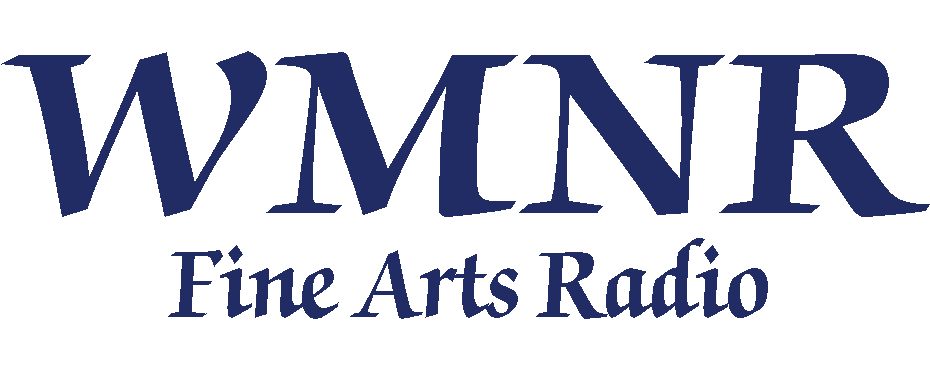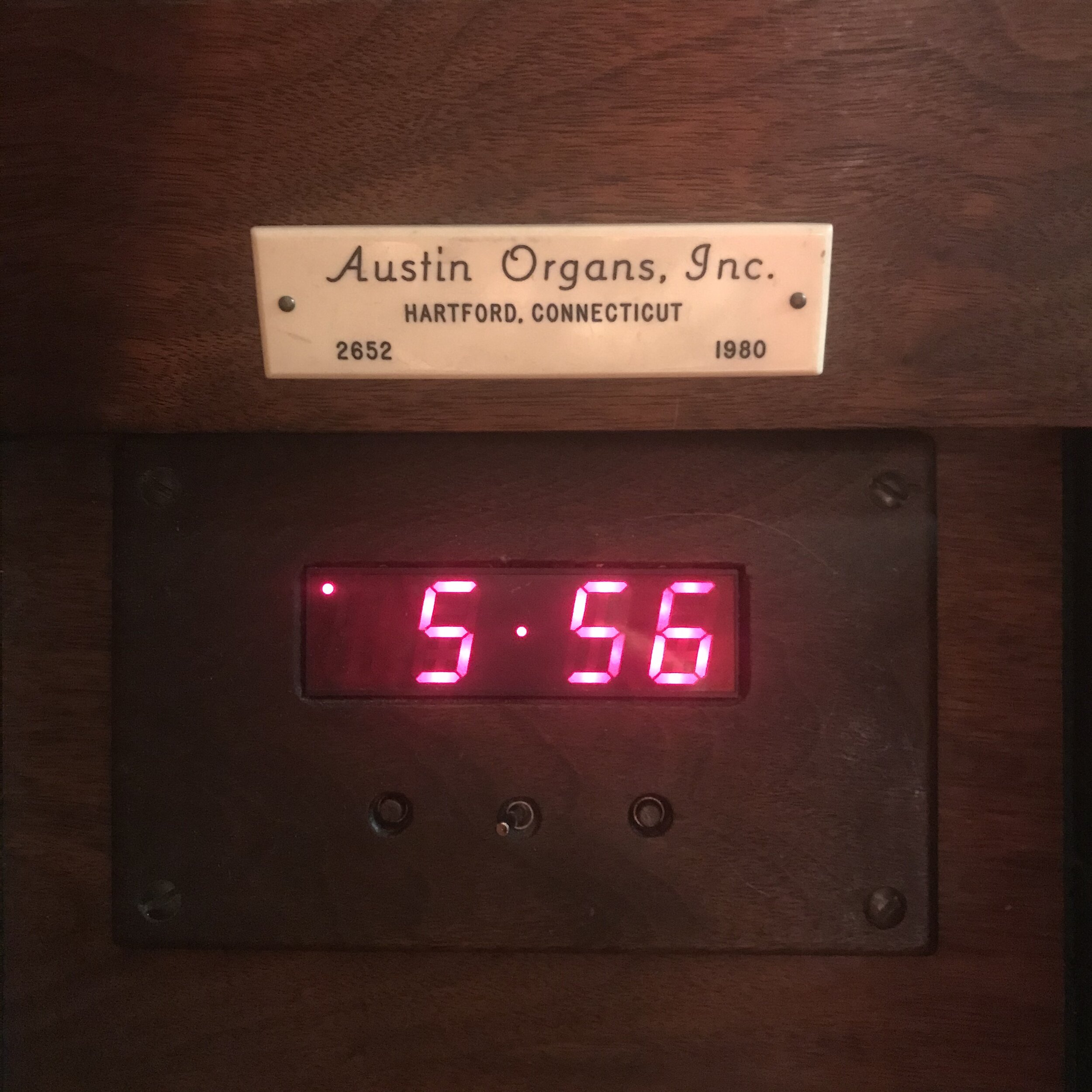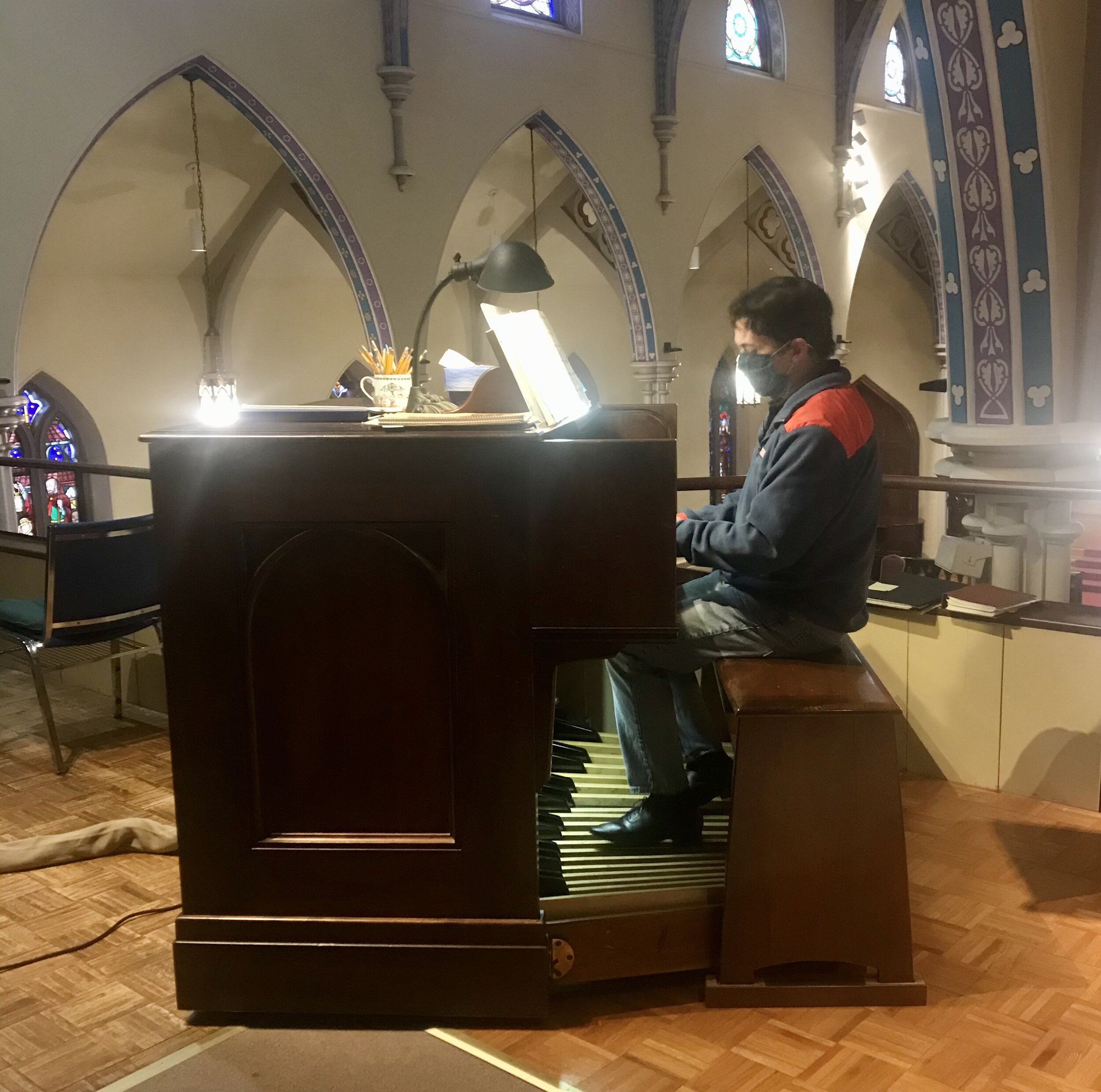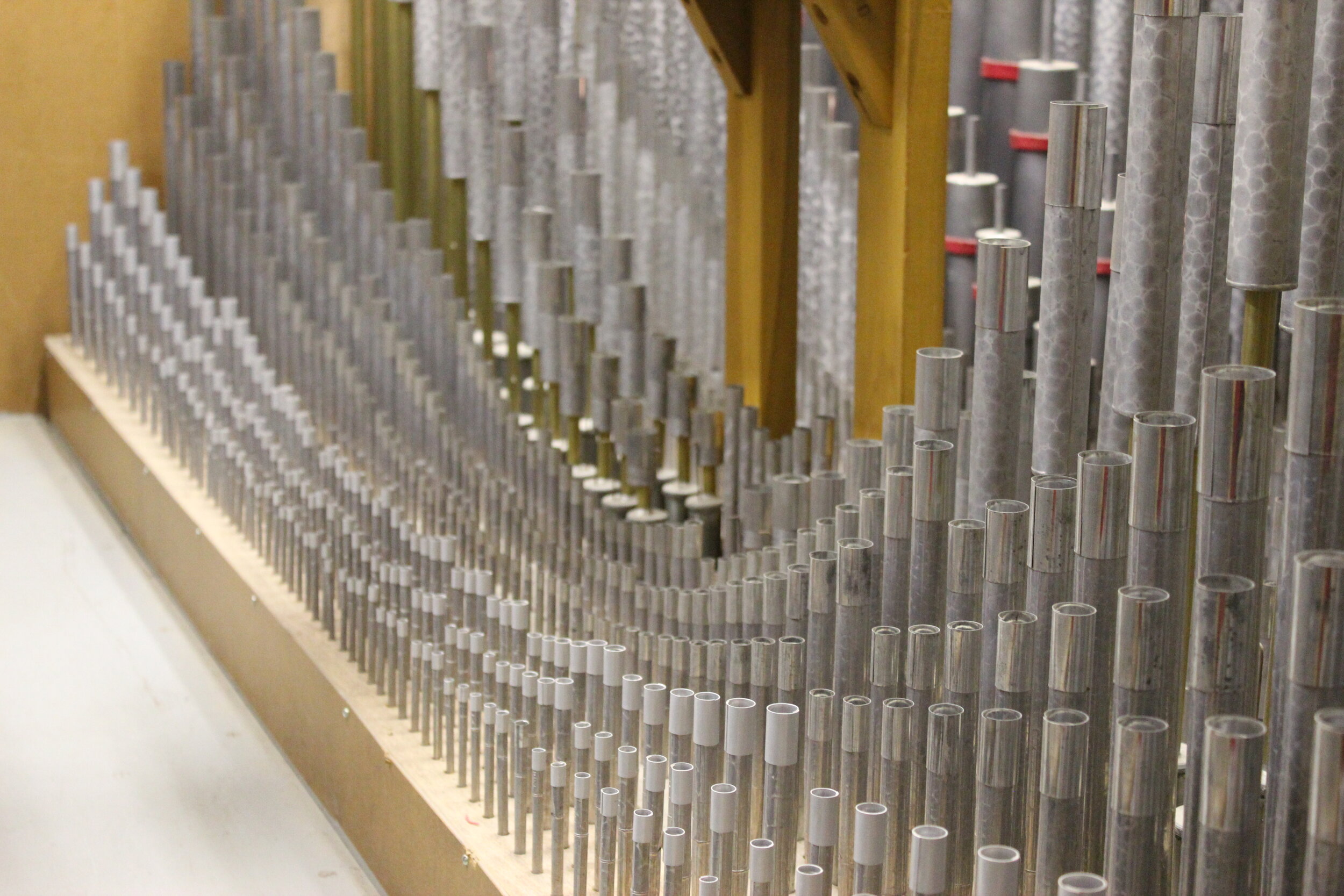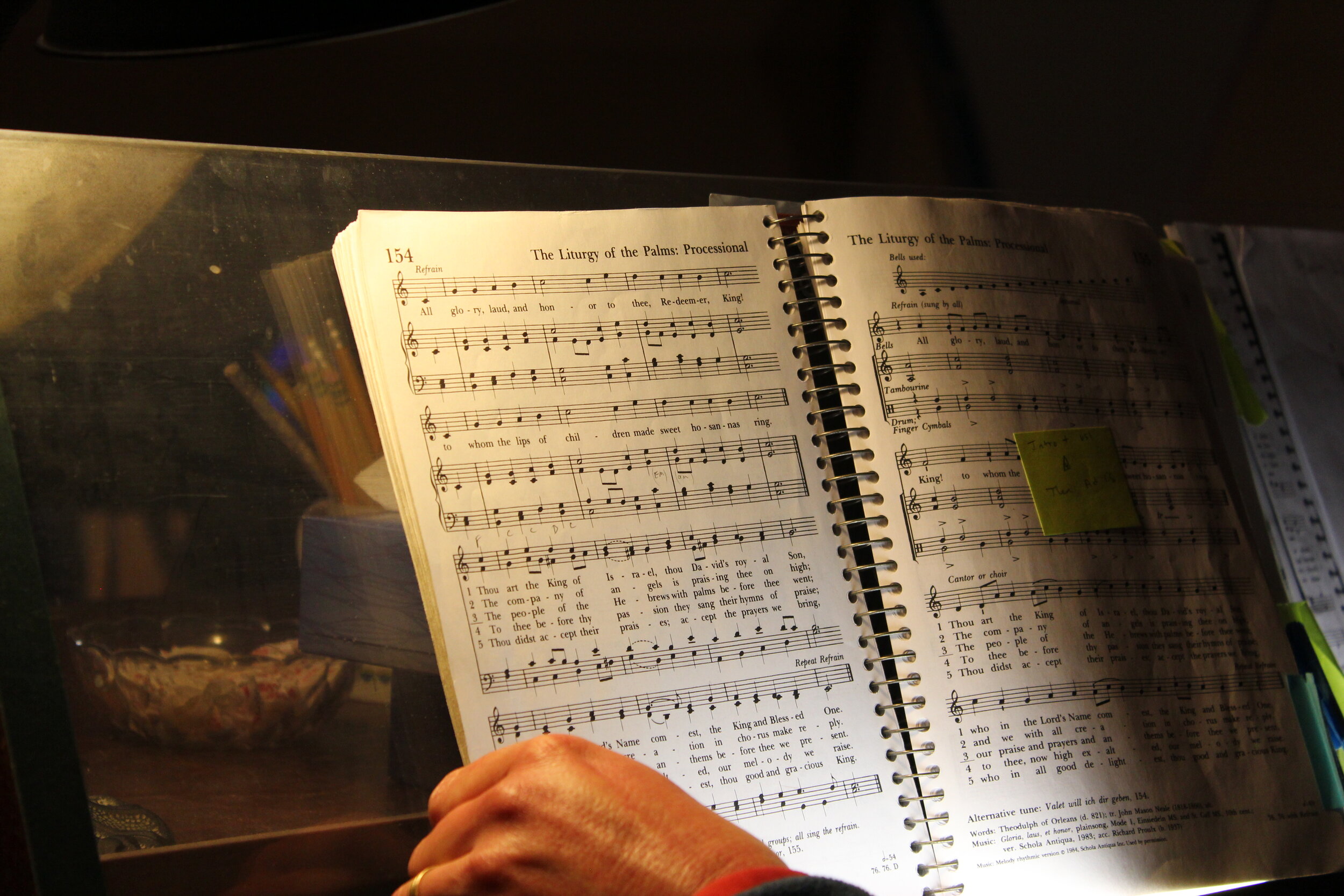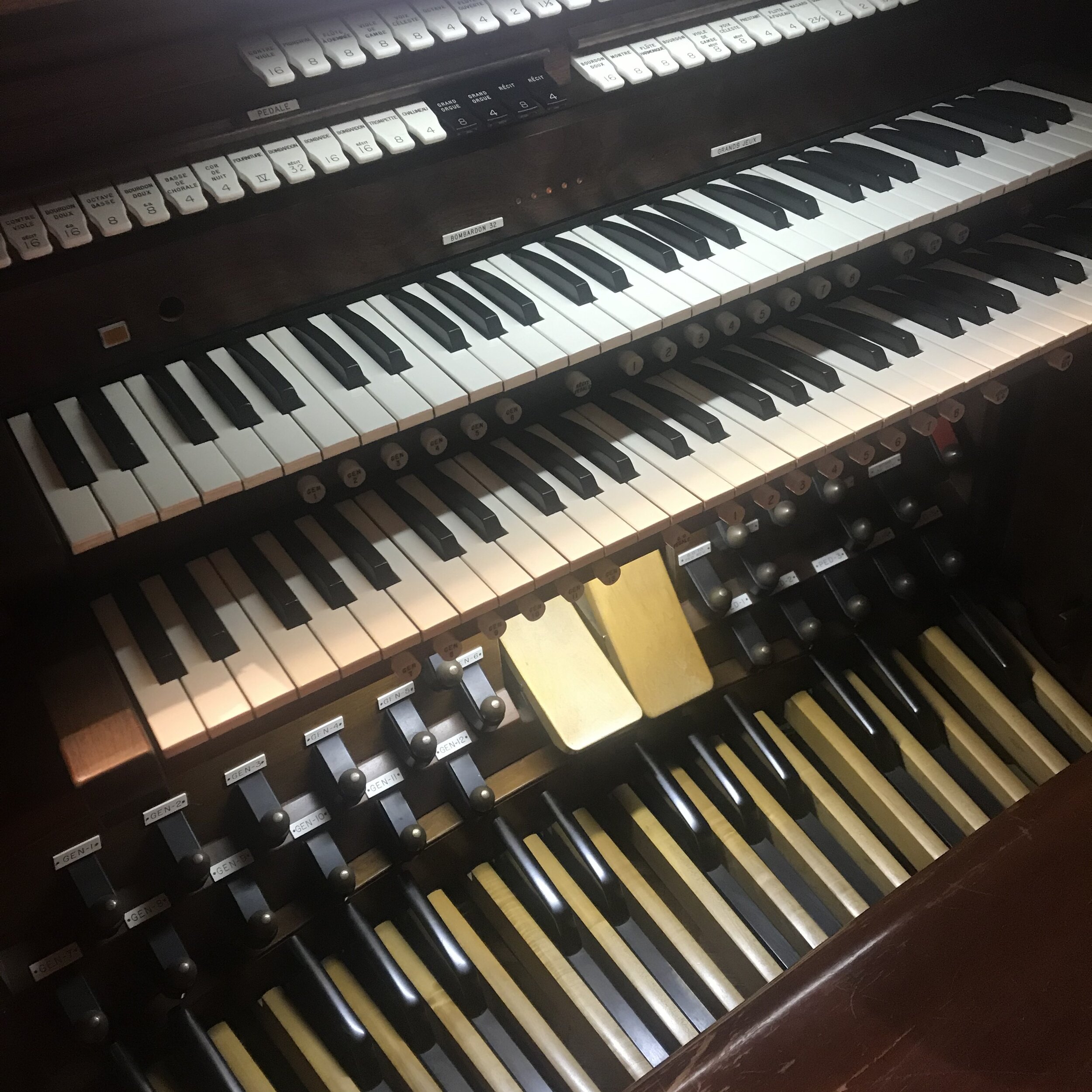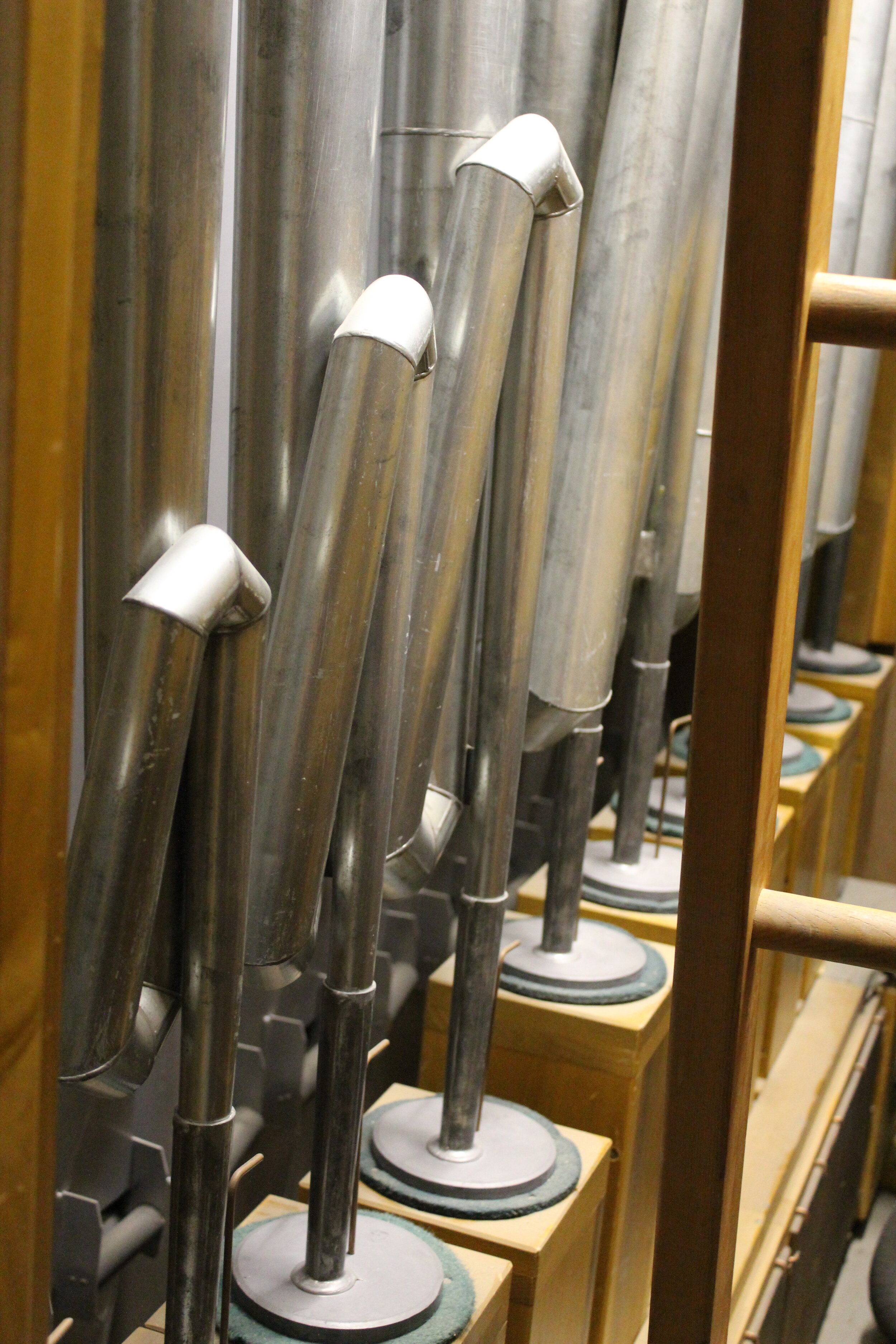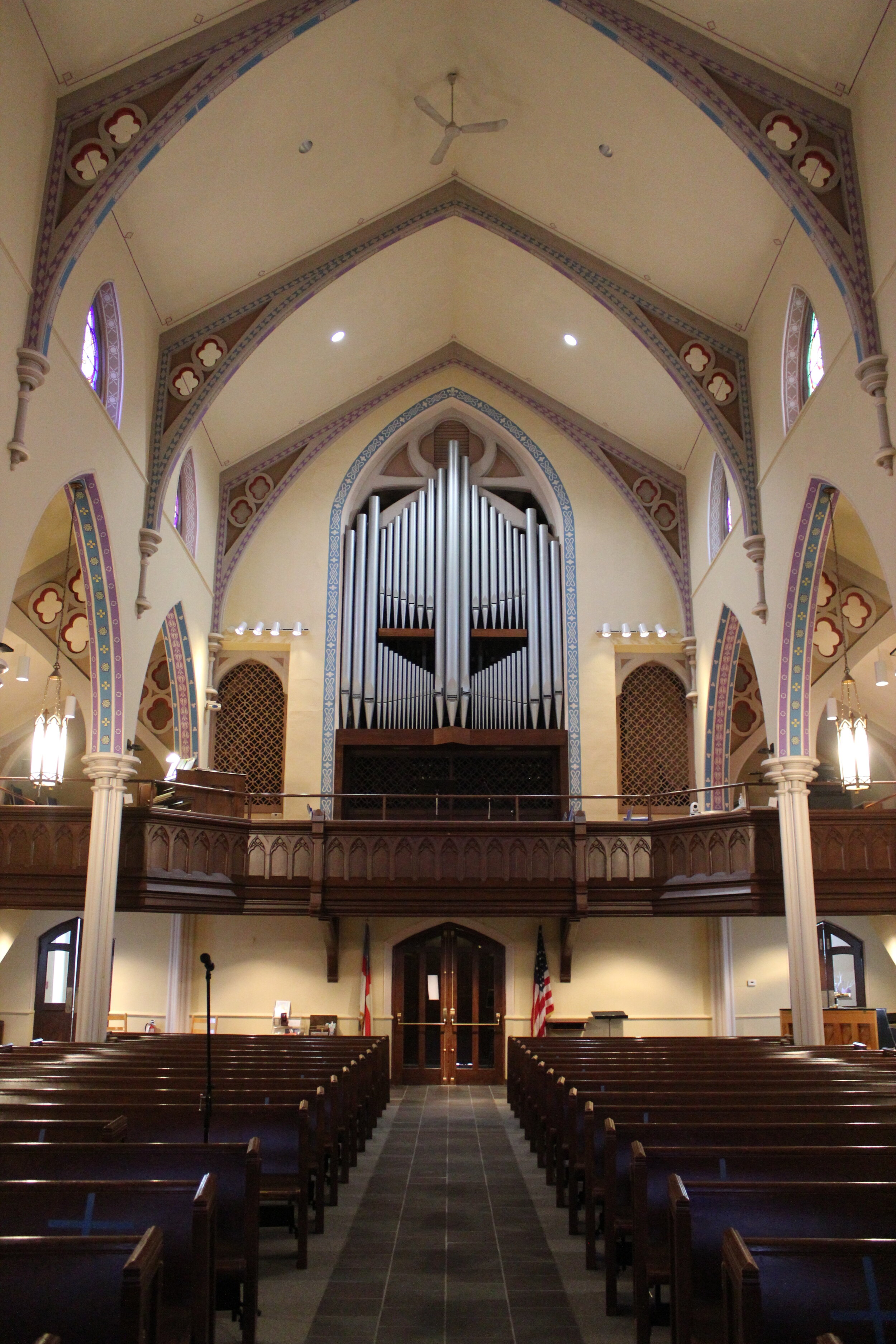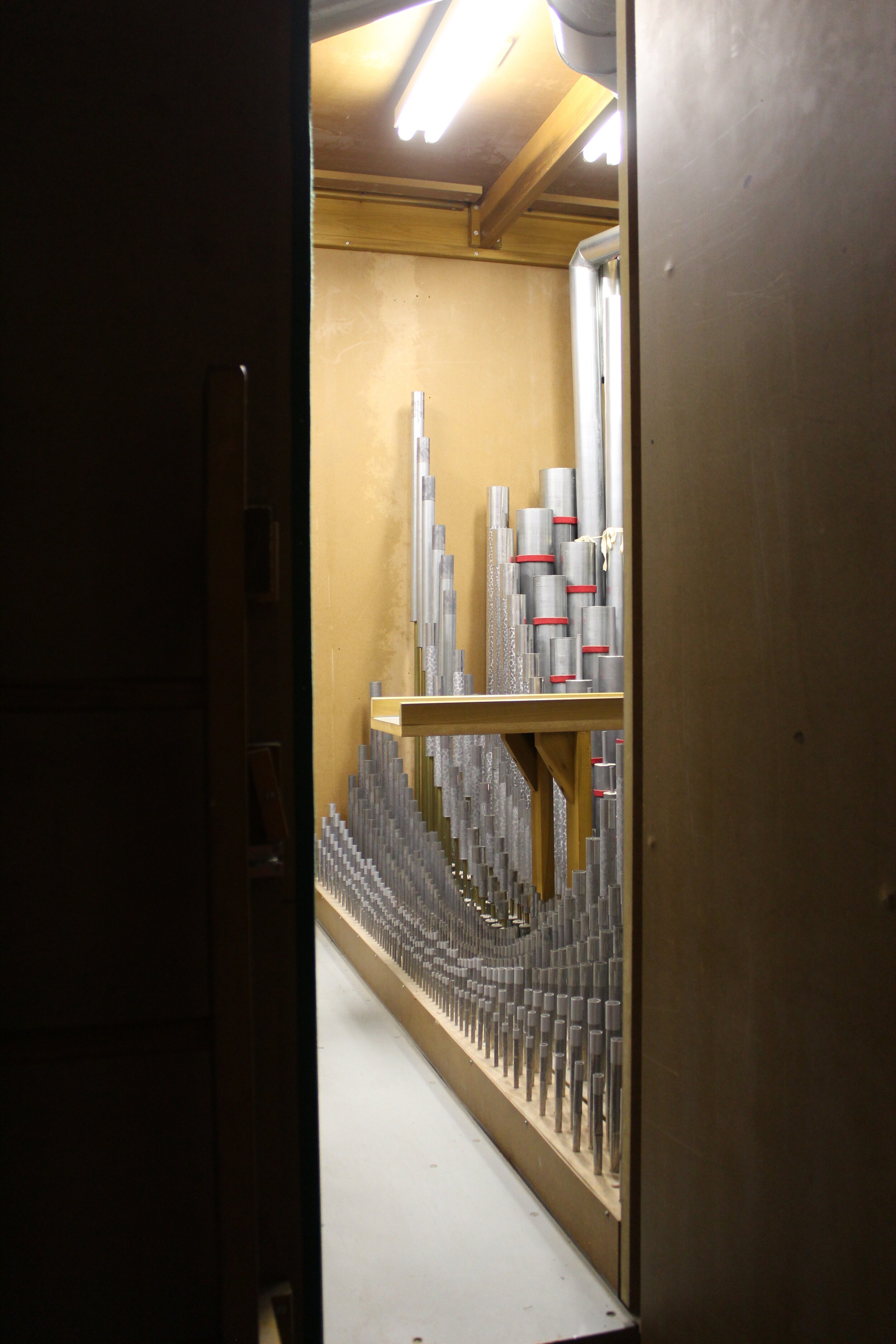Don’s work at Trinity involves not just the choirs, but performing on and caring for Trinity’s magnificent pipe organ which was built in 1980 by Austin Organs Inc. of Hartford. The dedicatory recital was given by Douglas R. Major of the Washington National Cathedral. The instrument is 12,000 pounds and sits in the gallery at the west end of the nave.
The “organ” is more a system composed of a console, two manuals, 43 ranks, 2,369 pipes (from the size of pencils to telephone poles), plus a series of electric blowers, and shutters which open and close to intensify the sound. The pipes are made from a lead/tin alloy, zinc, and wood.
Don began his music studies as a piano student then began to learn to play the organ at the church his family attended in New Jersey. His degree is in Music Performance from Kean University in Union, NJ. He tells us that the piano is a good foundation for playing the organ, but it involves a separate set of skills and further, “every single organ is different in its own way.”
In November of 2019, acclaimed organist Christopher Houlihan performed on Trinity’s organ. Houlihan is a graduate of Trinity College in Hartford, also the alma mater of broadcaster Parker Prout who features an organ work each Thursday at 10:00 am on The Organ Loft. Don was able to meet him but was dashing back and forth to the station, as he was substituting for Garrett Stack on Broadway Bound that Saturday! Don says Trinity traditionally holds a few organ concerts each year and hopes to return to that schedule once venues fully reopen. As we love to do for so many community arts organizations, we’ll be sure to tell listeners about these performances. In the meantime, Don’s artistry can be heard each Sunday on Trinity’s live-streamed services.
Don joined WMNR Fine Arts Radio in 2019 and has recently added two hours to his program, Saturday Morning Classics, which airs from 8:00 am to noon. Don’s classical music program develops chronologically. Hour one features the Baroque and Renaissance as listeners start their day. At 9:00 am, he turns to lighter Classical works (composed between the early 1700s and 1800s, an era within the genre we refer to as classical music). By 10:00 am he’s featuring Romantic classical music. To close his program he brings in more 20th century and modern works which he feels are a nice bridge to Afternoon Classics with Gary Fountain who often features contemporary composers.
How does his work as Director of Music Ministry at Trinity Episcopal Church in Newtown, CT inform his broadcast?
In the first hour of his program, Don includes a choral work, either sacred or secular. At Trinity, he directs four choirs: adults, children, the four-member Trinity Schola Cantorum, and the Taize choir which specializes in French monastic chant. He has aired recordings of Trinity’s singers on his program. Currently, he has been rehearsing Lenten music at Trinity which he has incorporated into his program. Regular listeners know that over the past few weeks he’s been working his way through O Vos Omnes - Music for Lent and Holy Week which features the Choir of St. Ignatius Loyola in NYC.
